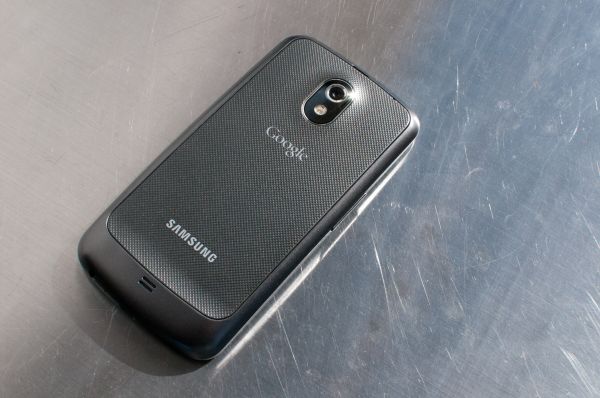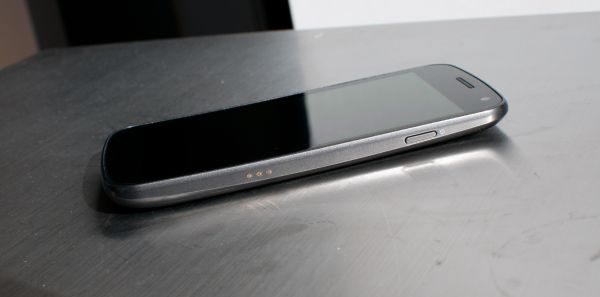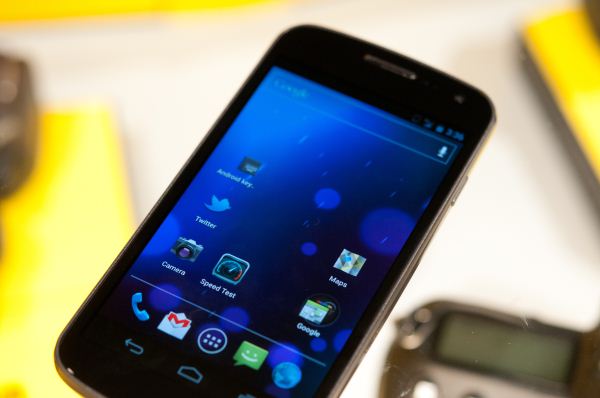Samsung Galaxy Nexus & Ice Cream Sandwich Review
by Brian Klug & Anand Lal Shimpi on January 18, 2012 1:34 PM ESTFor Google, one of the major points of Nexus has always been to provide a stable piece of reference hardware for it to cater a major OS release to. Each device has married a major revision of the Android platform to the latest stable hardware. That isn't to say that the hardware choices are always bleeding edge, but rather modern and logical next steps for the platform. I often read that Android as a platform is plagued by rapid hardware releases and product cycles that leave endless variants of the same hardware for each carrier, and that preloads and skins fragment the experience. While there's some truth to this, it isn't necessarily Google's fault - the software is open source after all. In the case of Android 4.0, this release is about consolidating the tablet and smartphone form factors under one version of Android and negating some talk of the platform's fragmentation.
For Google, each Nexus launch is analogous to Apple's iPhone launch - it's the one time that Google gets to dictate exactly what hardware is coming out, and exactly what software makes it onto that hardware. It is no less significant for Google's platform, either. Thus far there's been one Nexus device released per year, and that hardware gets updates from Google directly - at least until the hardware precludes support.
While the Verizon CDMA/LTE Galaxy Nexus is a bit unique, there's no indication thus far about how long carrier approval will take. The Galaxy Nexus line itself is very interesting - on one side, we have the GSM/UMTS device with pentaband WCDMA support that finally fully detaches the hardware from needing carrier specific versions for each region or carrier on GSM/UMTS networks. This is a dramatic step toward reducing carrier power, turning the networks into dumb pipes, and changing the way US customers shop for devices - exactly what the point was when Google launched the Nexus One. On the other, we have the Verizon CDMA/LTE version which thus far marks the furthest carrier incursion into otherwise untouched Nexus-land.
At this point, the Galaxy Nexus is awesome because of its marriage of Android 4.0 and a number of unique hardware features. I'd go so far to say that the Galaxy Nexus is without question the current best Android device, and with the improvements made in Android 4.0, first party applications and browser are now nearly as smooth as their counterparts in iOS. If OS smoothness was the thing holding you back from Android, 4.0 does a lot to change that. The Galaxy Nexus display is excellent, pentaband WCDMA on the GSM/UMTS model is exclusive only to that device, battery life isn't half bad, instant capture works well, and it has Samsung's newest LTE modem. The downsides are pretty much obvious - the camera is far from awesome, the GSM/UMTS variant has a quiet speakerphone, Samsung is using OMAP4460 at 80% of its maximum clocks, and some Galaxy Nexus displays have more more inhomogeneities than others. There's also the matter of newer 32 and 28nm SoCs that are just over the horizon.
The Galaxy Nexus is so important again because it's the only time Google gets to dictate everything - the hardware, the software, and update timing. There's also the element of freedom, with unlockable hardware out of the box. I find myself wishing that Google had begun its adventure sticking it to the carriers with pentaband WCDMA support like this phone finally has, as that would've been much more successful than the practice of releasing a few different Nexus variants with different bands.
As far as Ice Cream Sandwich is concerned, it really is Android perfected. Everything is smoother, faster and nearly all of our issues with the OS have been addressed. ICS brings Android into 2012 and gives Google a great platform to begin to introduce new features going forward. Android is now very close to UI performance parity with iOS, which eliminates a major tradeoff you had to make in the past. If you were hoping for ICS to be iOS with a Google logo on it, you'll be sorely disappointed. However if you're a fan of Android and just wished it were smoother and more polished, Ice Cream Sandwich is what you've been waiting for.













185 Comments
View All Comments
zorxd - Thursday, January 19, 2012 - link
And what exactly is more efficient?c4v3man - Thursday, January 19, 2012 - link
Their implimention of pseudo-multitasking as opposed to the much more flexible multitasking in Android.erple2 - Friday, January 20, 2012 - link
Bingo!Since the iOS can't do "true" multitasking, primarily as a design decision on Apple's part to greatly improve battery life (seen the battery life numbers on WebOS? They're pretty terrible), the requirements for memory are generally quite a bit lower than for Android.
You could argue all day as to which one is better, and still not come up with a clear winner. This is strictly due to the phone form factor. Given the limitations on usable screen size (can't display 2 apps at once reliably), and that you have to rely on battery life, the argument of which is "better" is more difficult to make. These all disappear when power is no longer a serious concern (desktop), nor physical screen display (notebook through desktop).
zorxd - Friday, January 20, 2012 - link
yeah and DOS is better because it works fine with only 1MB RAM.OCedHrt - Friday, January 20, 2012 - link
Which is fine due to fast app switching.trob6969 - Wednesday, January 18, 2012 - link
You didn't have to sacrifice GPU performqnce for a 4.3 inch 720p HD display. You could have done what i did and got an htc rezound. I downloaded Dead space, which is probably one of the most GPU demanding games for a phone, and gameplay is FLAWLESS on it! ZERO choppiness throughout the game. My rezound plays this game just as smoothly as my playstation 3. That says a lot about a phone's performance.metafor - Wednesday, January 18, 2012 - link
Note that with the increased clockspeed to the SGX540, the OMAP4460 matches the GPU performance of a Snapdragon S3 (used in the Rezound).Both chips perform similarly with the CPU clock at 1.2GHz (compare Sensation 4G to GN, for example).
dwang - Wednesday, January 18, 2012 - link
Deadspace runs perfectly fine on the galaxy nexus. No choppiness or slowdown.Zoomer - Thursday, January 19, 2012 - link
TI probably didn't anticipate the move to such high resolutions. The 540 was probably chosen as a good enough solution, given the power reqs are well.This is where Apple's hardware-software codesign wins out.
Johnmcl7 - Wednesday, January 18, 2012 - link
That reasoning that microSD cards are too slow seems to only apply to some of the cheap phones which pretty only use micro SD storage, for a phone like the Nexus it doesn't matter as you say because the micro SD card is for storage rather than applications. I don't really understand why the Nexus doesn't get a harder time for the lack of microSD storage given the relatively low onboard storage and high spec which means it can play back high resolution video which needs quite a bit of space. It's one of the main reasons I went for the Note instead which has the better camera, faster GPU and the micro SD storage allowing me to add 32GB very cheaply (and more down the line when 64GB cards come down in price) which is pretty necessary as the high resolution video recording and other features chew through space very quickly.John